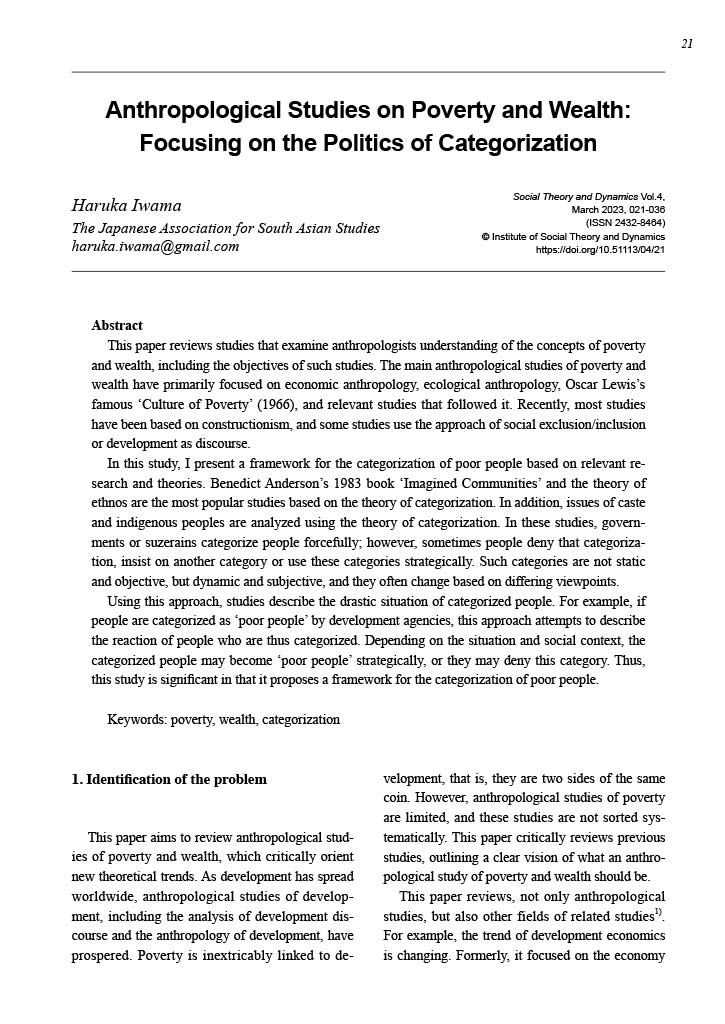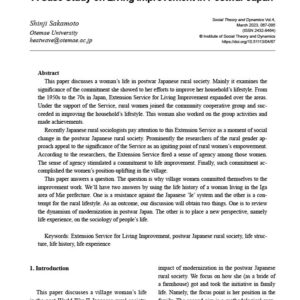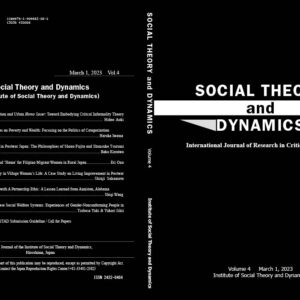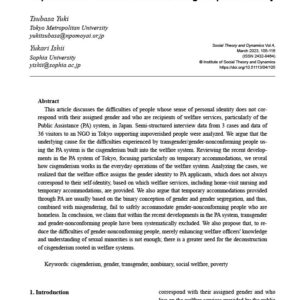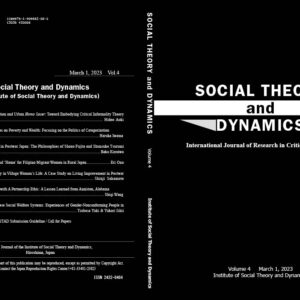Description
This paper reviews studies that examine anthropologists understanding of the concepts of poverty and wealth, including the objectives of such studies. The main anthropological studies of poverty and wealth have primarily focused on economic anthropology, ecological anthropology, Oscar Lewis’s famous ‘Culture of Poverty’ (1966), and relevant studies that followed it. Recently, most studies have been based on constructionism, and some studies use the approach of social exclusion/inclusion or development as discourse.
In this study, I present a framework for the categorization of poor people based on relevant research and theories. Benedict Anderson’s 1983 book ‘Imagined Communities’ and the theory of ethnos are the most popular studies based on the theory of categorization. In addition, issues of caste and indigenous peoples are analyzed using the theory of categorization. In these studies, governments or suzerains categorize people forcefully; however, sometimes people deny that categorization, insist on another category or use these categories strategically. Such categories are not static and objective, but dynamic and subjective, and they often change based on differing viewpoints.
Using this approach, studies describe the drastic situation of categorized people. For example, if people are categorized as ‘poor people’ by development agencies, this approach attempts to describe the reaction of people who are thus categorized. Depending on the situation and social context, the categorized people may become ‘poor people’ strategically, or they may deny this category. Thus, this study is significant in that it proposes a framework for the categorization of poor people.

